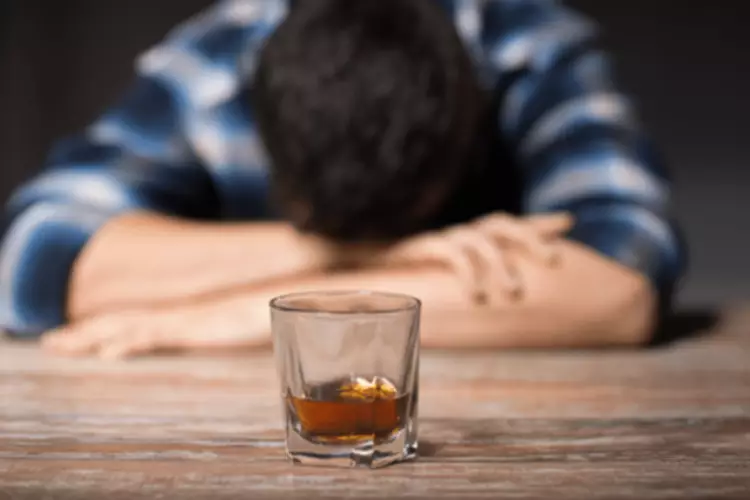
The truth is, you have been using drugs or alcohol to cope with your feelings and maybe even symptoms of mental illness. If you give substance abuse up, you’ll have to face those emotions and find a new way to cope. If you have been abusing substances to tamp down feelings, you are in for a boatload of overwhelming emotions as you come clean. Get over your fear of being sober by facing it head on.
“I Will Not Be Able to Have Fun Anymore”
Staying sober requires a person to analyze the reasons why they were using the substance, identify their personal triggers for relapse, and avoid falling into a pattern of use again. One study found that 68% of people treated in a detox unit experienced moderate alcohol withdrawal symptoms. You can expect certain alcohol withdrawal symptoms such as sleep disruption to occur, though some people can experience seizures and other severe symptoms. Sobriety can be a fixed-term goal like staying sober for a set period (such as Dry January), or a lifelong goal of staying sober from all substances. Many people who misuse alcohol or drugs have trouble dealing with anger. If left unchecked, anger can have a negative impact on your health and your lasting sobriety.
Avoid Old Routines and Habits
Research shows that if you maintain these types of toxic relationships, your chances of relapsing are greater. To avoid relapse and remain sober, it’s important to develop healthy relationships. You may also need to change your route to work or home in order to avoid any triggers, or people, places, or things that make you want to use drugs or drink again.
Sobriety Fear #3: You’re going to fail.
What you do NOT want to do is let your fear about what MIGHT happen with your friends in the future dictate what you do to take care of yourself in the present. With proper counseling and/or a good recovery program, you’ll learn important tools for navigating these relationships. Another common fear in sobriety is that you’ll wind up alone because no one will want to hang out with you.

Reality Check
Fear in recovery isn’t something you can avoid, but it is something you can overcome and work through every day in your journey towards recovery. Over the next few weeks, we’ll touch on some of the most profound causes of fear in people fear of being sober facing addiction. We’ll also provide specific steps to take when your heart starts racing and your mind starts wandering. In the early days, I felt that it was my responsibility to answer the question, “How come you aren’t drinking?
“I Will Lose My Friends”
Realizing that sobriety means you’ll have to find new ways to handle your “stuff” is frightening. The idea that you don’t get to chemically check out of reality now and then is horrifying, especially when you think that reality is pretty terrible. It’s the whole, “You mean I can never drink ever again?! ” Let your brain marinate on words like forever, and you’ll set yourself right up for failure.

- This research-based technique has been shown to support sobriety.
- Sometimes our fears are logical, but mostly they are not.
- There are other people just like you that are meeting their fears head-on and are coming out on the other side with a bright and limitless future.
- They struggle with the thought that they need to open up about their past scars.
- There’s no more not caring if they see your cellulite or whatever you’re hiding under there; and you will, once and for all, discover that sex is never like in the movies.
Leave it alone, give it time, and it will go away on its own. Besides, allowing the fear of failure to completely influence big decisions like this is a cop-out. It’s a dysfunctional version of “playing it safe.” You deserve better than that. You will have good days, hopeless days, and every other sort of in-between day on this journey.

This is one of the most common fears of sobriety. It is natural to wonder whether you will be able to complete treatment, especially if you do not have any idea what it entails. The best solution is to find out more about the kinds of treatment available to you and choose the one that best suits your needs. Research drug and alcohol https://ecosoberhouse.com/ treatment centers in your area, and be sure to ask questions, so you will be able to find a treatment center that meets your needs. Support isn’t just needed to get a person started on the path to recovery from addiction. As stated above, support can help the individual stick to treatment through the duration of the program.
- But, being sober commonly causes people to fear that pain coming back.
- However, sobriety doesn’t mean you won’t be able to cope with life’s challenges.
- There are times when youll doubt yourself and get pushed outside of your comfort zone.
- One reason for this is the understandable and very common fear of what being sober feels like.
- That’s why this gridlock that’s in the title of the report is so concerning.
- January was nuts,” Mann says, boosted by drinkers committed to avoiding alcohol for Dry January.
- This is especially true if you’ve been able to hide your addiction up until now.
- With help from a healthcare professional, you can start looking for a treatment program that meets all of your unique needs.
- With friends, if they aren’t on board with your sobriety, you’ll have some tough choices ahead.
- It discusses treatments and ways to cope with this mental health condition.
The world of life, the world of biodiversity also doesn’t respect borders. There are implications with losses in biodiversity in a part of the world that affect other parts of the world. McMillan foresaw wine consumption by volume declining 20% in the next decade, with millennial habits key to the shift. Last year, Nielsen data showed 45% of gen Zers over 21 said they had never drunk alcohol.

